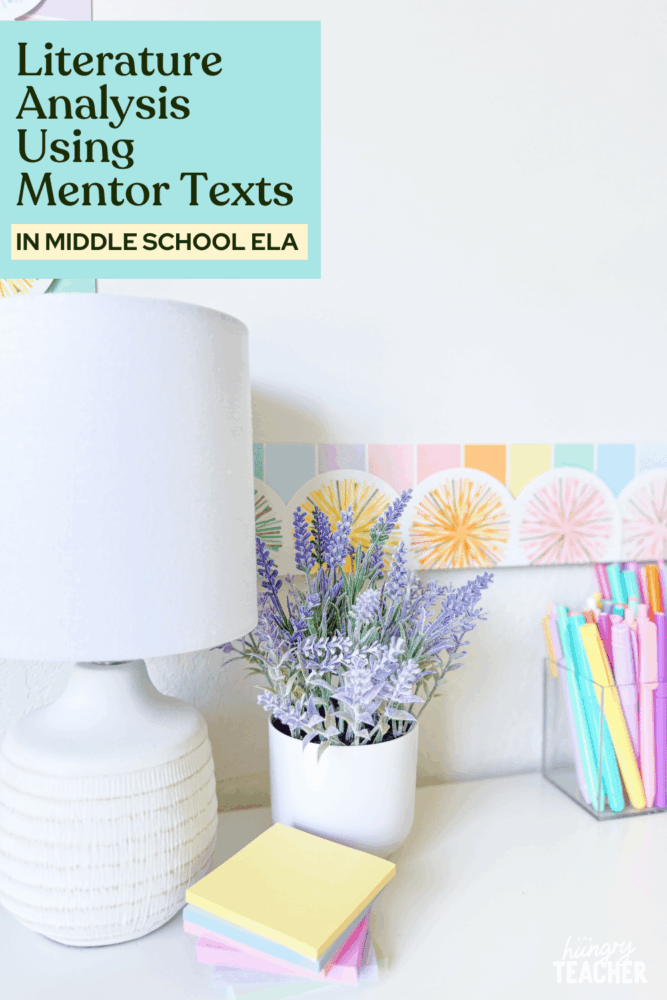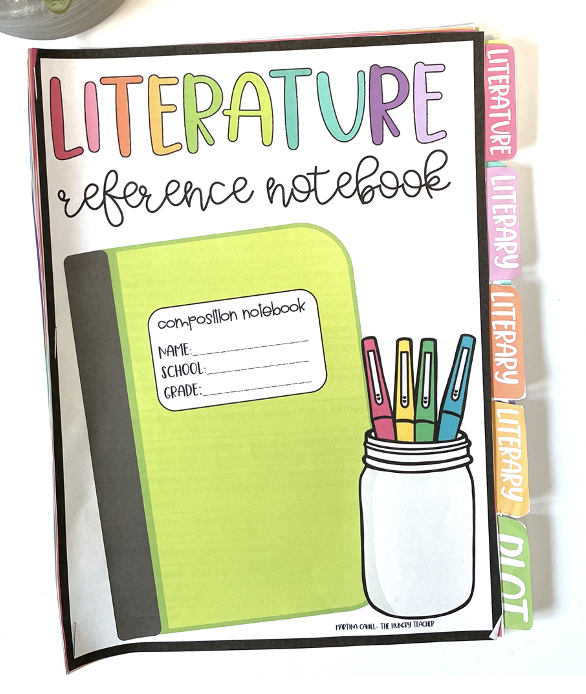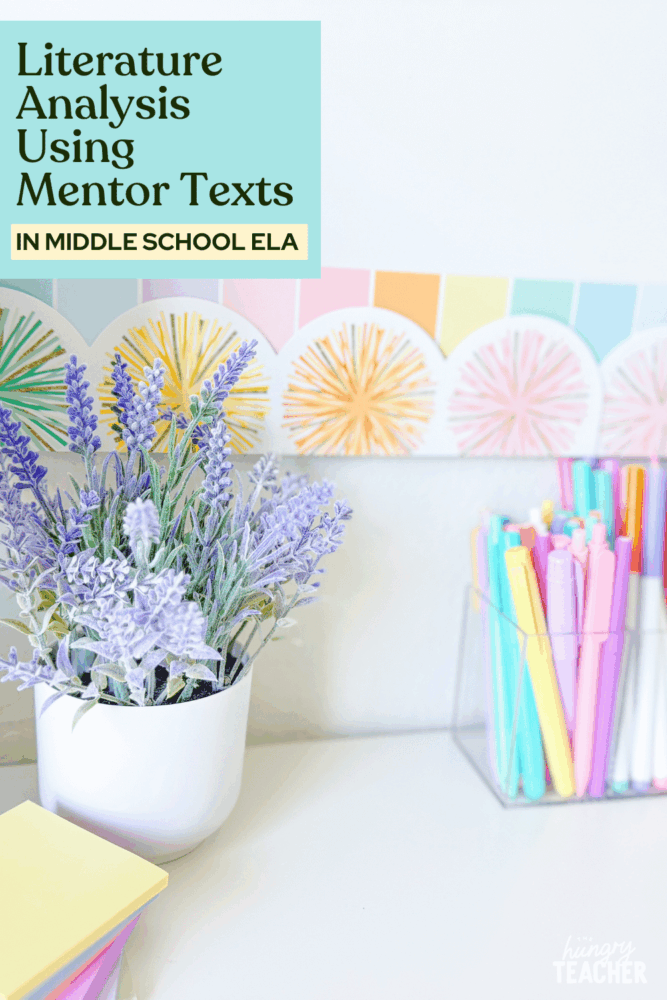hey friend!
I'm Martina.
I provide practical, time-saving strategies that actually work—so you can engage your students, teach effectively, and reclaim your time from the exhausting planning-grading cycle.
Browse Our ELA Resources
Literature Analysis Using Mentor Texts
Middle School Realistic Fiction Unit for Literature Analysis Using Mentor Texts
Young adult fiction novels are perfect for teaching literature concepts, literature terms, and literature analysis.
When I developed this realistic fiction unit, I wanted to do so with mentor texts in mind. This unit focuses on literature analysis using mentor texts and includes studying literary concepts, interacting with the text, and collaborating with others. This 300+ page unit takes 4 weeks and includes mentor text examples for grades 6-8, so you can use it each year!
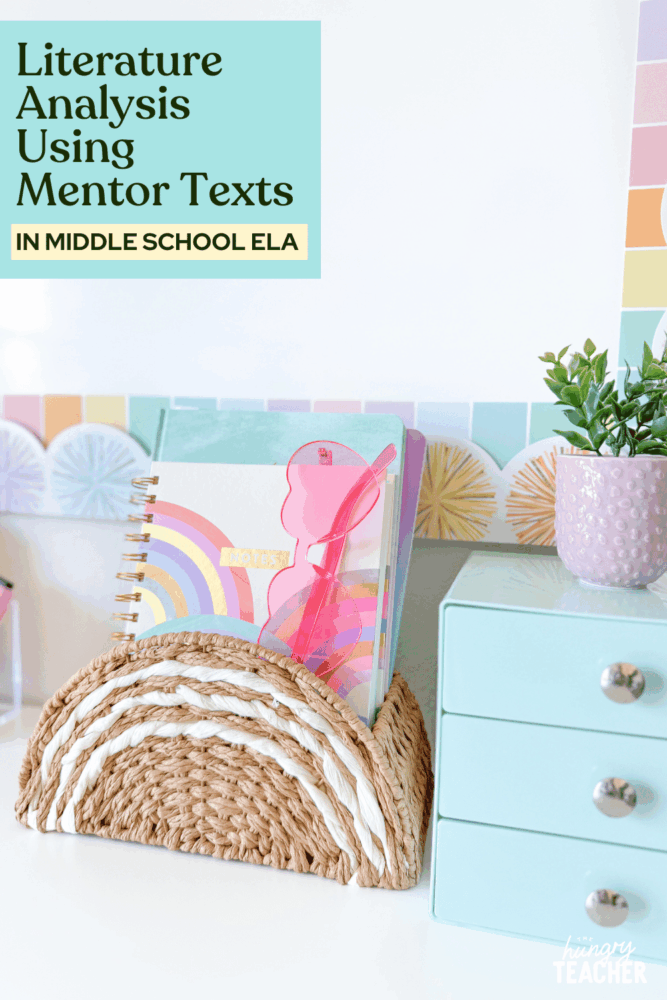
Connecting with Literature Through Book Clubs
Whether you call them literature circles or book clubs, this realistic fiction unit is perfect for introducing books that your students will read together in groups. First, I like to use the Starbooks Realistic Fiction Novel Selection/Book Club Selections as a pre-lesson to have your students select books.
Let your students test the books with a book tasting at “Starbooks”. You can open up your own “coffee shop” in your classroom to have your students try out books before they make final decisions on their top five books. Get all you need to open up your own Starbooks!
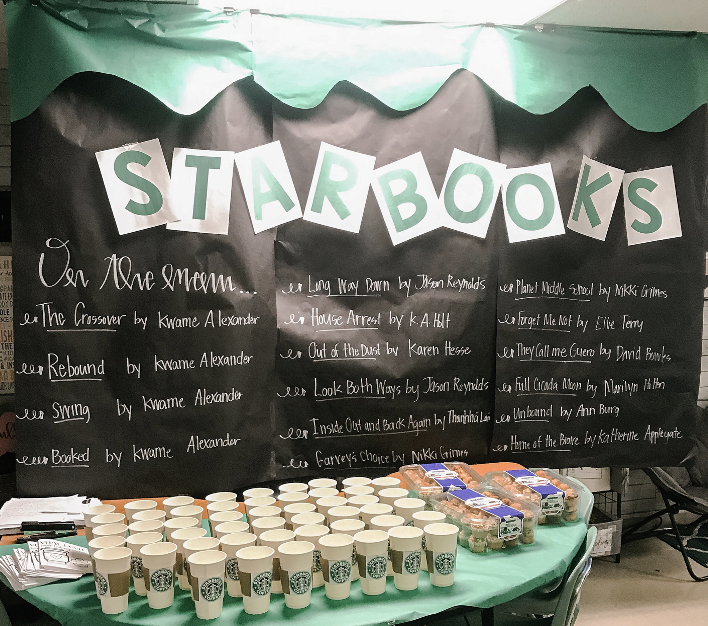
Literature Concepts
I genuinely love teaching realistic fiction because kids can relate to so many of the characters. However, sometimes it’s hard to fit in all the literature concepts in four weeks. That’s exactly why I created this unit the way I did. It makes sure that the focus is literature analysis using mentor texts, but it also breaks down each literary device.
I put together this realistic fiction unit with 18 lessons designed to cover multiple literature concepts and Common Core State Standards. The general idea is that Overall, here are all the lessons you’ll get with the realistic fiction unit:
- Starbooks Realistic Fiction Novel Selection/Book Club Selections
- Hard and Fast Figurative Language and Literature Terms
- Point of View Impact
- Setting Impact
- Analyzing Character Traits
- Direct and Indirect Characterization
- Analyzing Theme
- Literary Inferences
- Conflict
- Point of View vs. Perspective
- Literary Text Structures
- Inspiration from the Past
- Elements of Plot
- Figurative Language Analysis
- Theme Development
- Central Idea and Objective Summary
- Multimedia Versions Analysis
- Narrative Point of View
Each of realistic fiction unit lessons not only includes interactive notebook activities for independent learning or literature circle groups but also include links to reinforcement activities. The 18 lessons (including two pre-lessons) are designed to be flexible. Since the lessons are modeled after mentor texts, you can use them as they are or use the open questions designed for any realistic fiction novel or short story.
READING WORKSHOP
Each daily lesson follows a reading workshop schedule in the realistic fiction unit. In addition, each lesson has the following sections:
- CCSS Learning Standards for 6th, 7th, and 8th
- Learning Target for Lesson
- Guiding Questions for Reading Responses
- Interpretive Question for Book Club Discussions
- Vocabulary
- Teacher Preparation (though all my examples can be used)
- Literature Interactive Notebook Lesson and Examples/Answer Keys
- Learning Period: Lesson, Read Aloud, and Modeling
- Reading Response Break Down
- Display Slides for Reading Response to show students an example for each lesson.
- Different Reading Response Example for each grade with Unique Mentor Texts for each (6th- Ghost by Jason Reynolds; 7th- Freak the Mighty by Rodman Philbrick, and 8th- The Outsiders by S.E. Hinton).
- Graphic organizer reading response options for all lessons
- Book Club Assignment
I start my class by having students complete a bell ringer for 5 minutes while I take attendance.
Next, students review and learn vocabulary terms necessary for the day’s lesson for 10 minutes.
During the next 20 minutes is the learning period. Read aloud from mentor texts to model good reading, metacognition, and also the targeted literature concept for the day.
Next, your students complete their reading response materials in interactive notebooks.
While the students work independently, you can grade their reading responses quickly from the day before.
Next, your students interact and discuss in their literature circle or book club books for 10 minutes or so.
Finally, spend the last few minutes wrapping up and sharing responses. Overall, your students experience reading workshops every day with these lessons.
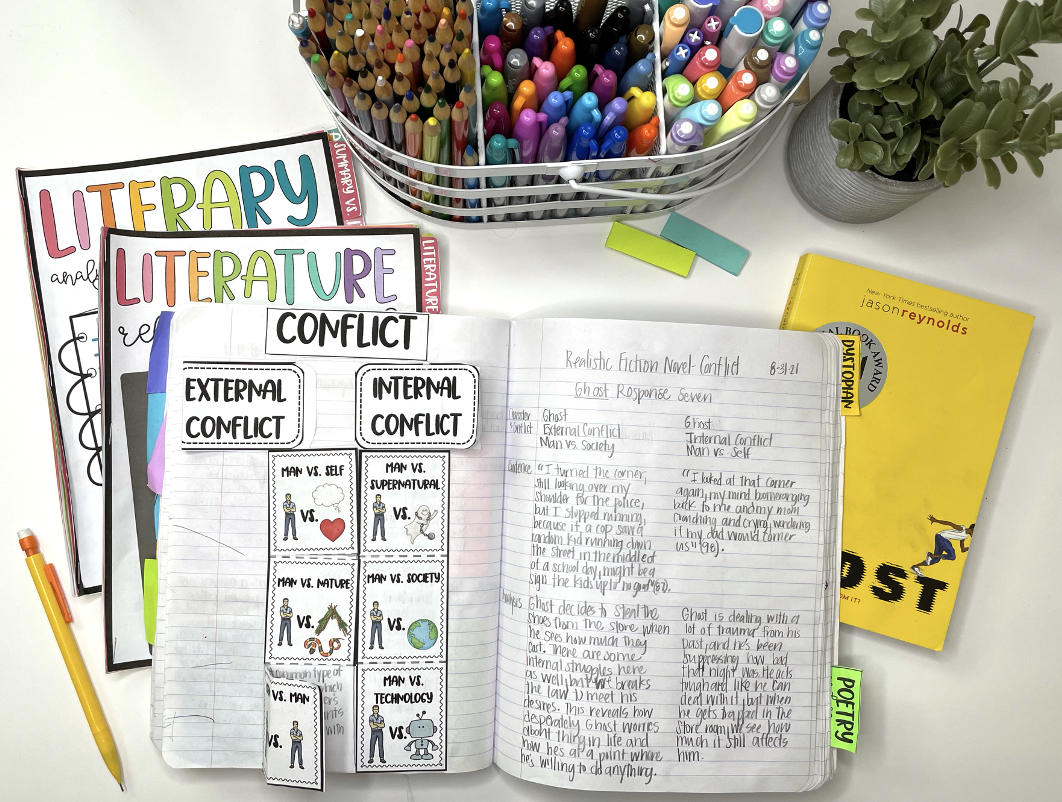
LITERATURE TERMS AND FIGURATIVE LANGUAGE REFERENCE NOTEBOOK
With the common core literature standards, there are honestly so many terms and concepts to unpack. Give your students the resources they need in this realistic fiction unit with literature terms and figurative language reference notebook pages.
All of the concepts covered in the unit are broken down on these convenient reference sheets. Easily store them in a notebook to use during the unit or they can be used all year long. To snag this for free >> CLICK HERE <<.
ADDITIONAL RESOURCES
Your realistic fiction unit for literature analysis using mentor texts will have everything you need to teach realistic fiction from start to finish. However, additional resources include:
- Three Different Examples for All Reading Responses (6th- Ghost by Jason Reynolds; 7th- Freak the Mighty by Rodman Philbrick, and 8th- The Outsiders by S.E. Hinton).
- Reading Response Slides to Be Displayed While Students are Reading and Writing
- Book Club Slides to Be Displayed During Book Club Meetings
- Graphic Organizers for all Reading Responses
- Literature Circle Forms, Implementation Resources, and Group Grading and Forms.
- Editable Reading Response Rubrics
- Using the middle school realistic fiction unit for literature analysis will help your students learn all the common core state standards and engage and interact with high quality literature and one another.
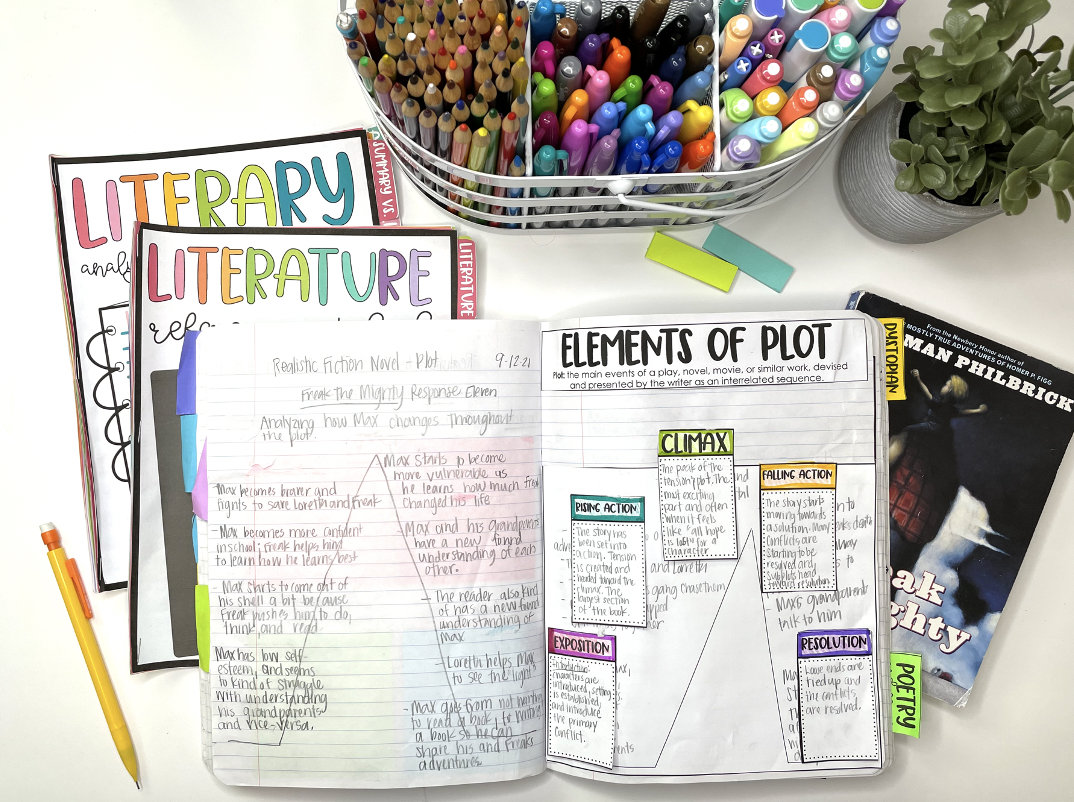
FREE LITERARY DEVICES REFERENCE BOOKLET
If you’re feeling overwhelmed when it comes to teaching ALL the literary devices in middle school ELA, then I’ve got you covered.
This FREE Literary Devices Booklet has 17 different reference pages for middle school students to use as they do simple response to reading work or as they navigate their way through complete literary analysis essays.
Each reference pages takes a different category of literary devices and breaks it down into manageable chunks and concepts for students in a way that fosters their independence.
These reference pages will support turning your students into analytical readers and writers in no time. To snag this for free >> CLICK HERE <<.
Want a sneak peek at teaching The Hungry Teacher way—with support, structure, and strategy?
When you join the waitlist for The Hungry Teacher’s Hub membership, you get three free classroom-ready resources: a theme unit, an expository writing unit, and a grammar unit introducing mentor sentences. Plus, you’ll get immediate access to a selection of exclusives from the Hub, including editable sub plans, pacing guides, and more.
No strings attached. Just resources you can use right now—and a heads-up when the Hub opens.
3 Free Middle School ELA Units—yours to keep!
JOIN THE WAITLIST + A FREE GIFT
Where to next, line leader?
Welcome to The Hungry Teacher! We create resources that are easy to use, practical, and get results. Teach with confidence—and make it home before dinner.
xo, the hungry teacher
